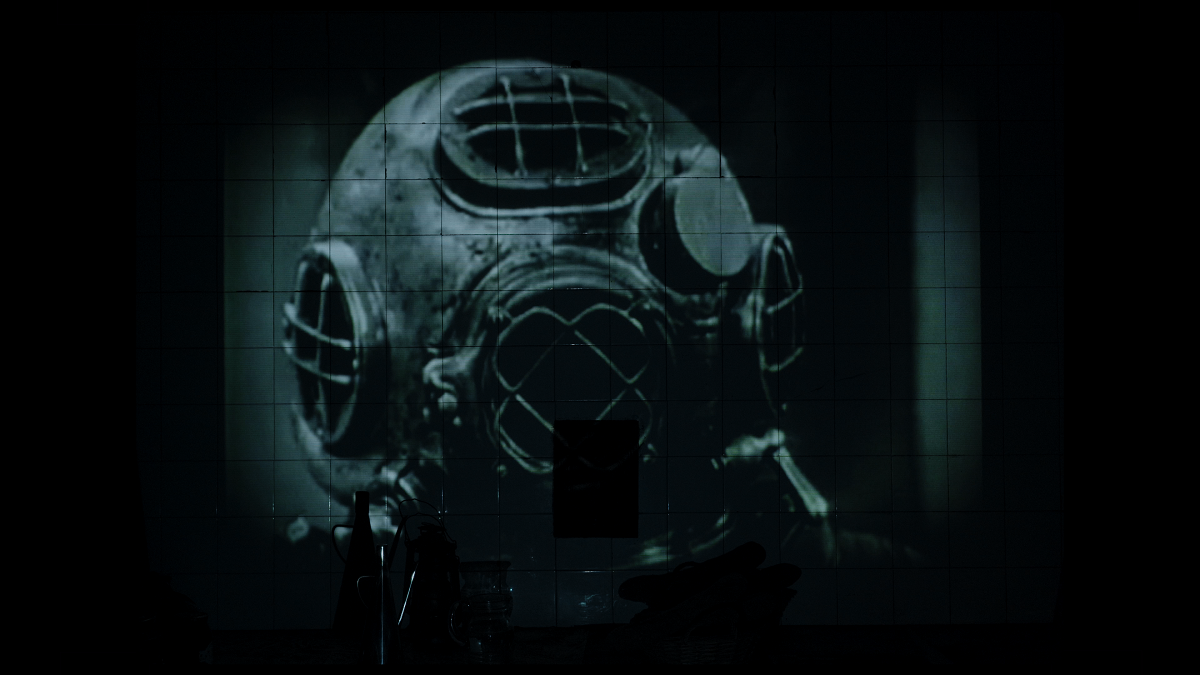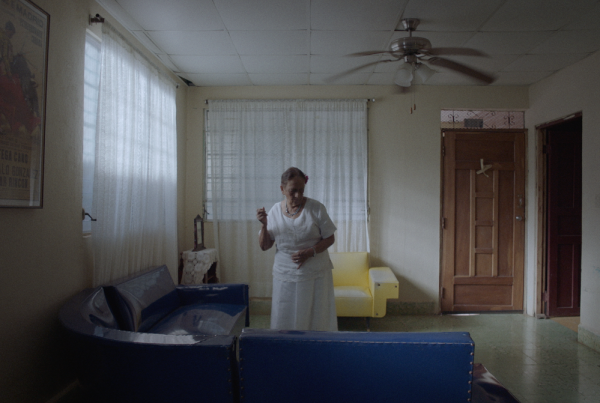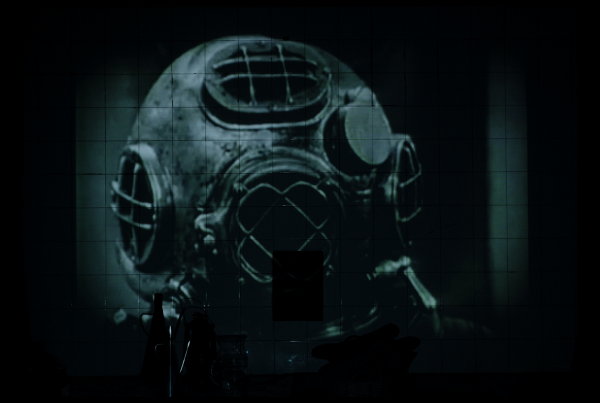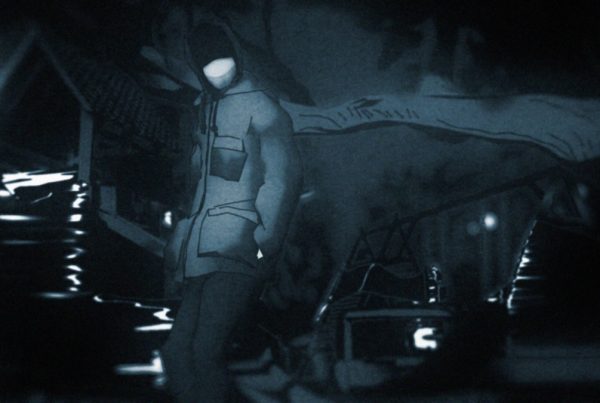curated by Claudia Praolini | reviews by Vanessa Mangiavacca
Ubik is an out-of-competition part of the festival, where the works with the most innovative language find their natural spot. Whereas the aim of short films experimenting new ways of expression has always been one of the core criterion for selecting and evaluating all the films competing at Concorto, the Ubik ones push the limit a bit further, in less-charted territories, where the border between cinema and video fades away. It is a kind of cinema which talks about itself, a cinema which turns its eye towards itself, revealing with no shame the mechanisms upon which video-recording is based. A kind of cinema which, conscious of its structures and language, decides to “unveil the trick”, but exactly thanks to this process, turns the viewing into opaque, as if meta-cinema were a lens which works the other way around, capable of blurring the layers of which reality is made and the experience of viewing itself.
I film selezionati
by Claudia Praolini
A LOVE SONG IN SPANISH, Ana Elena Tejera, 2020, PANAMA/FRANCE
AUGAS ABISAIS (DEEP WATERS), Xacio Bano, 2020, SPAIN
FOREVER, Mitch McGlocklin, 2020, USA
GRAMERCY, Jamil McGinnis, Pat Heywood, 2020, USA
PACIFICO OSCURO, Camila Bletran, 2020, COLOMBIA, FR
Księżyc (THE MOON), Tomasz Popakul, 2020, POLAND
Reviews by Vanessa Mangiavacca
A LOVE SONG IN SPANISH, Ana Elena Tejera
A love song in Spanish is conceived as a double performance, a visual and sound dialogue between past and present, between Panama under the regime of the 1980s, and the way it affected the people who lived it. Ana Elena Tejera opens painful drawers left ajar for decades, telling the history of her own country and her family. Through archive images, the director, for the first time, comes close to those days and memories remained unspoken, censured, of her grandfather – sent as a soldier to Israel – and of her grandmother, the main character of the short film. The political dictatorship is paralleled by other less visible constraints, the domestic and emotional ones: the legacies of the former expand like never-ending concentric circles, absorbing every scrap of humanity. Legacies that still today, after 40 years, show the signs of those unhealed wounds.
AUGAS ABISAIS (DEEP WATERS), Xacio Baño
Photophores are light-emitting organs present in many fish living on the seabed. They do not cause ships to sink, they do not swallow heroes, but they provide light thanks to their brightness. The animal world, both unexplored and known, offers us fascinating dynamics and behaviours from which we can learn. Xacio Baño starts from the darkness, from the secret depths of the abysses in order to understand and lucidly examine the surface. In the dark, there is light: two complementary parts as the two parts of the film, which shifts between scientific fable and documentary. Between seeing and not seeing, the director chooses the latter, and, starting from this, he develops Deep Waters, an immersion in the underground waters of the history of his country and family, in the individual written and oral memories of the Spanish Civil War. Just as in A Love Song in Spanish, it has come the time to shed light on the darkest pages of the last century.
FOREVER, Mitch McGlocklin
I watched C-beams glitter in the dark near the Tannhauser gate.
Photophores are light-emitting organs present in many fish living on the seabed. They do not cause ships to sink, they do not swallow heroes, but they provide light thanks to their brightness. The animal world, both unexplored and known, offers us fascinating dynamics and behaviours from which we can learn. Xacio Baño starts from the darkness, from the secret depths of the abysses in order to understand and lucidly examine the surface. In the dark, there is light: two complementary parts as the two parts of the film, which shifts between scientific fable and documentary. Between seeing and not seeing, the director chooses the latter, and, starting from this, he develops Deep Waters, an immersion in the underground waters of the history of his country and family, in the individual written and oral memories of the Spanish Civil War. Just as in A Love Song in Spanish, it has come the time to shed light on the darkest pages of the last century.
GRAMERCY, Jamil McGinnis, Pat Heywood
My soul has grown deep like the rivers.
Gramercy tells the story of Shaq, of his return back home and his relationship with his lifelong friends. The very young American director duo Jamil McGinnis and Pat Heywood successfully manages to show the point of view of a person suffering from depression. Precise screenplay decisions reveal the main character’s feeling of loss: the rotation of the camera creates a distance and an invisible protective shield, a thin line that no one is to cross. The ordinary black and white world is mixed with a colourful dream-like film, a quiet and remote natural landscape in which to find some peace. Gramercy is an extremely contemporary work that depicts today’s young Western generation and lucidly exposes one of the biggest taboos and problems of our society.
PACIFICO OSCURO, Beltran Camilia
The music and sounds of one’s community are a symbol of individual and collective belonging and union, especially in realities such as Colombia. There is a sinuous, wandering spirit moving among the young, nameless faces of Pacifico Oscuro, in its shifts between digital and analog, between sharpness and blurriness. Extinction and loss are two main themes of contemporary Columbian cinema, where the ancestral pact with nature, as well as all the energy and beliefs connected to it, is often at risk. Camilla Beltran develops her own story starting from an ancient legend according to which women in the past made deals with mystical forces to learn how to sing. Before presenting it, the narrator explains that believing this story without having experienced it is a great act of faith. So, we believe and trust in the singing, in the cry of the new generation, this time headed by women, with the hope that it will be ready to preserve the lost and make up for the mistakes of the present.
THE MOON, Tomek Popakul
The music and sounds of one’s community are a symbol of individual and collective belonging and union, especially in realities such as Colombia. There is a sinuous, wandering spirit moving among the young, nameless faces of Pacifico Oscuro, in its shifts between digital and analog, between sharpness and blurriness. Extinction and loss are two main themes of contemporary Columbian cinema, where the ancestral pact with nature, as well as all the energy and beliefs connected to it, is often at risk. Camilla Beltran develops her own story starting from an ancient legend according to which women in the past made deals with mystical forces to learn how to sing. Before presenting it, the narrator explains that believing this story without having experienced it is a great act of faith. So, we believe and trust in the singing, in the cry of the new generation, this time headed by women, with the hope that it will be ready to preserve the lost and make up for the mistakes of the present.














Commenti recenti